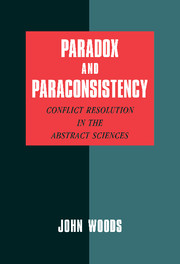6 - Fiction
Published online by Cambridge University Press: 05 June 2012
Summary
Do I contradict myself? Very well then I contradict myself (I am large, I contain multitudes).
Walt Whitman, Leaves of Grass, 1855I am clear that [the philosophy of mathematics] would have to be a fictionalist account, legitimizing the use of mathematics and all its intratheoretic distinctions in the course of that use, unaffected by disbelief in the entities mathematics purports to be about.
Bas van Fraassen, The Scientific Image, 1980In this chapter, I want to try to rzedeem the pledge of stipulationism in (especially) the abstract sciences. At the same time, I wish to seek for consideration what might fairly be said to motivate the fundamental principle of dialethism, the existence, namely, of true contradictions. On the face of it, the place to pursue their objectives is in the theory of fiction, or in that branch of it known as the logic of fiction (Woods, 1974). Fiction is, or appears to be, a paradigm of truth-making stipulations, in the sentences made true by the author's sayso and those that follow from them under suitably constrained closure conditions. And fiction endorses, and thereby makes true, sentences having the character of contradictions – or so it would appear. A third reason for exploring the logic of fiction is the mere fact of fictionalism in the foundation of mathematics (Woods, 1974). It is a fact that summons up an initially attractive principle:
Fictionalism: Since fictionalism with regard to a theory T proposes that T's truths are secured and validated by analogy with how the truths of fiction themselves are secured and validated, fictionalism with respect to T cannot be an adequate semantic theory of T unless the theory of fiction borrowed by T's fictionalism is in its own right a semantically adequate theory of fiction.
- Type
- Chapter
- Information
- Paradox and ParaconsistencyConflict Resolution in the Abstract Sciences, pp. 196 - 227Publisher: Cambridge University PressPrint publication year: 2002



